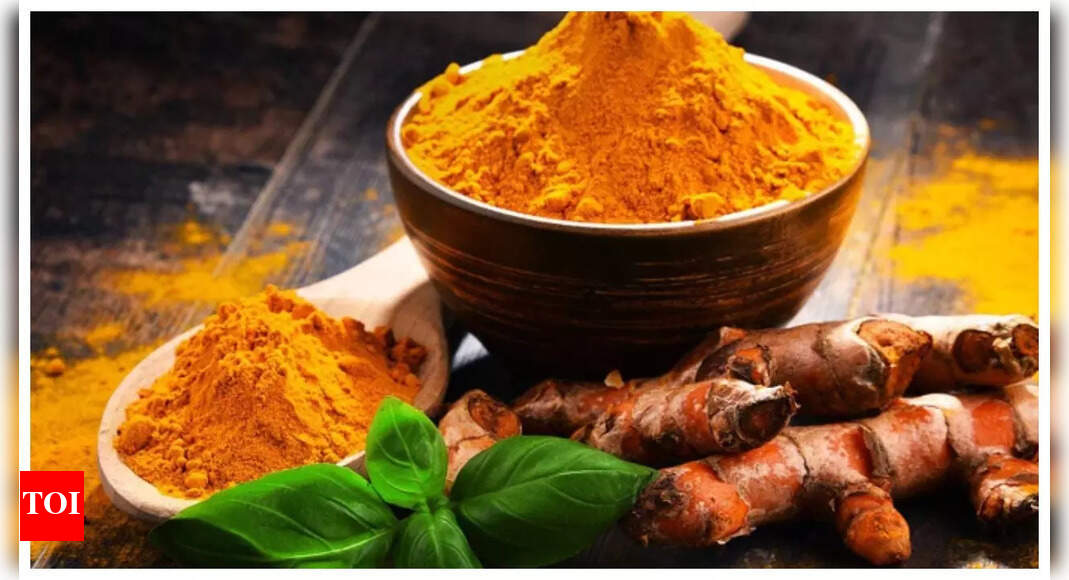
Turmeric, or the good old haldi, has been used as a spice, and natural remedy for centuries. When it comes to Indian cooking, most of us add a pinch to all our curries, and even soups, and for good reason. The active compound curcumin in turmeric, not only adds color to the meal, but it also possesses anti-inflammatory, antioxidant, and antibiotic characteristics. Many people use turmeric to help their liver function and decrease inflammation, particularly when dealing with fatty liver disease. However, consumption of high-dose turmeric supplements can lead to potential liver-related risks. Dr Saurabh Sethi, a Gastroenterologist, based in US, trained at Harvard, in an IG post recently detailed the benefits of turmeric, but also passed on a word of caution. Let’s see…Dr Sethi recently posted on his IG handle. He wrote, “A question I hear all the time in clinic is simple—but important:Turmeric has been celebrated for centuries, and for good reason. In food—about ½–1 tsp a day in curries, teas, or golden milk—it’s generally safe and may even support liver health.But here’s where things get tricky: high-dose supplements.Some studies suggest curcumin can reduce inflammation in fatty liver disease. Yet, I’ve also seen rare cases of liver injury—usually at very high doses or with certain formulations. Genetics, other meds, and dose all matter.So what’s the takeaway? Turmeric in food = safe and generally beneficial.Turmeric in high-dose supplements = not always harmless.The science is clear: enjoy it in your meals, but be cautious with capsules—especially if you already have liver disease.”Here’s more on Dr Sethi’s adviceGreat in dietMost of us can safely consume turmeric through our regular diet (half to one teaspoon each day). Adding turmeric to regular meals brings flavor, and even protects the liver gently, because of its anti-inflammatory properties. Research indicates that curcumin helps decrease liver inflammation in patients with fatty liver disease, and can even help in improving liver enzyme values. The small amount of turmeric found in food when consumed naturally, leads to rare adverse effects from eating turmeric.Supplements can be dangerousNow comes the tricky part. Turmeric supplements which come in capsule, tablet form or extract form can be tricky, when taken in excessive amounts. Research says that taking excessive amounts of turmeric, might even lead to liver damage over the long run. The risk of adverse effects increases when people take high doses of turmeric, or when they use absorption-enhancing formulations. Studies say that when it comes to turmeric, more is not necessarily good, and people must exercise caution.

Genetic makeup mattersNot all high-dose turmeric supplement users will develop liver complications. Research indicates that genetic elements determine how likely a person is to develop liver damage. The HLA-B*35:01 genetic marker appears in most cases where turmeric causes liver damage to patients. The immune system of the body starts attacking liver tissue when turmeric exposure reaches high levels, or when it is processed in specific ways. The risk of liver damage from turmeric supplements depends on several factors including pre-existing liver conditions, current medicine use and individual metabolic rates.Draw a balanceTurmeric used as a spice in regular meals is great, and poses no real risk per se. The anti-inflammatory properties of turmeric help protect the liver while it is part of a regular diet. People with liver issues, along with those who consume excessive amounts of turmeric, need to be careful. Before starting turmeric supplements, you should consult with your doctor, especially when you have liver disease or take prescription medications. People who take supplements should get their liver function checked, because this helps doctors detect potential issues early on. Those who take supplements, should do it under strict medical supervision.

How to use turmericPeople can safely consume turmeric through their food by using it in traditional recipes such as curries, teas and golden milk preparations. When selecting turmeric supplements make sure to pick products which display clear labeling and contain standardised curcumin amounts. People should monitor their body for signs of liver damage which include fatigue, alongside jaundice symptoms and nausea and abdominal pain.








